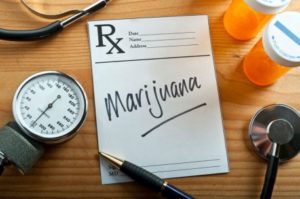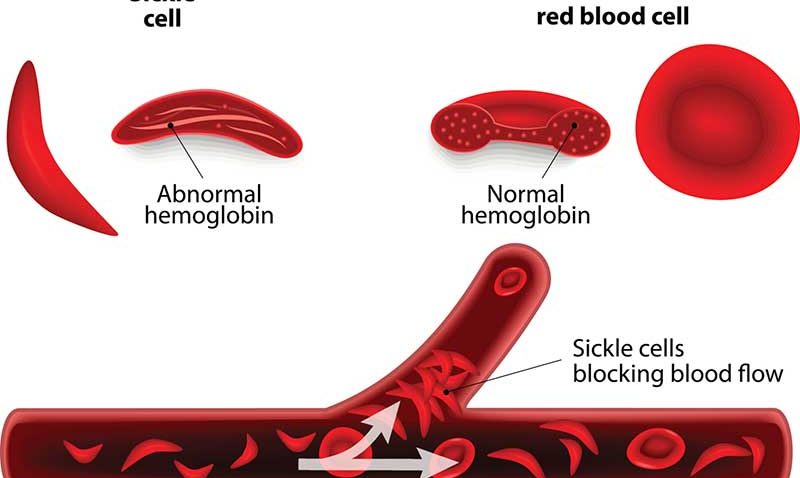 Medical marijuana has been legal in Florida since 2016, but Floridians may not be fully aware of what it takes to legally consume cannabis in the State. Now that medical marijuana is legal in Florida, it could improve quality of life for thousands of residents in the Sunshine State just like you. Understanding what’s needed in order to get approved for medical marijuana isn’t always simple. Not having an accurate idea of the requirements for getting approved could prevent you from obtaining relief from a wide variety of symptoms. If you’re curious about trying medical marijuana but aren’t sure what’s needed, this is a great place to start!
Medical marijuana has been legal in Florida since 2016, but Floridians may not be fully aware of what it takes to legally consume cannabis in the State. Now that medical marijuana is legal in Florida, it could improve quality of life for thousands of residents in the Sunshine State just like you. Understanding what’s needed in order to get approved for medical marijuana isn’t always simple. Not having an accurate idea of the requirements for getting approved could prevent you from obtaining relief from a wide variety of symptoms. If you’re curious about trying medical marijuana but aren’t sure what’s needed, this is a great place to start!
A Qualifying Medical Condition
There are currently numerous conditions that allow Florida residents to obtain a medical marijuana card. To the benefit of Floridians, the list of conditions that allow access to medical marijuana are steadily increasing. Some of the most common medical diagnoses for using medical marijuana treatment are Anxiety, Chronic Pain, Cancer, Seizures, MS, Arthritis, Glaucoma, Parkinson’s and PTSD. Floridians who don’t suffer from any of those conditions should read up on the rest of the conditions that can be legally treated with medical cannabis.
Doing research on the conditions that cannabis can legally help deal with could drastically increase your quality of life. Since the Florida medical Board is regularly adding to the list of qualifying conditions, it may be helpful to check back regularly for any changes. Documentation of a history dealing with specific qualifying conditions will be helpful to have on file as well.
Medical Records
Having access to medical records is not mandatory to get approved for medical marijuana in Florida. However it certainly helps. Unfortunately, accessing your medical records is likely much easier said than done. That’s especially the case if you’re someone that’s had to deal with numerous ER and doctor visits over the years. Luckily, there are numerous resources available that make collecting and managing medical records easier than in years past.
Make An Appointment With a Marijuana Doctor in Florida
The last necessity for getting approved for medical marijuana is a block of free time for an appointment with a medical marijuana physician. Now that you have an understanding of the conditions that allow patients to receive medical marijuana, along with the documentation required, it’s time to make an appointment with a medical marijuana doctor who can get you approved for a medical marijuana card.
Click to Learn more here.
Along with granting you with legal access to medical marijuana in Florida, a medical marijuana doctor can also provide guidance on best practices for using the medicine for specific conditions. Ultimately, getting approved for a card can have a drastic impact on multiple facets of your day-to-day life. Discover the impact for yourself by getting approved for medical marijuana in Florida today!
Contact All Natural MD today to learn more about getting a medical marijuana card approval in Florida. We have numerous medical marijuana doctor locations throughout the state to assist you and have certified over 15,000 patients for medical marijuana in Florida thus far. (800) 250-6737.
Medical Marijuana As A Treatment for Sickle Cell Anemia
Living with sickle cell anemia presents numerous long-term challenges and there often aren’t methods for treating it. Fortunately, people living with sickle cell anemia in Florida now have access to legal medical marijuana, which can be effective in treating the condition. Even though medical marijuana isn’t necessarily a cure for sickle cell anemia, using it properly can have a dramatic increase in quality of life. Continue reading below for some specific insights on why medical marijuana can be vital in helping to treat sickle cell anemia.
Treating Chronic Pain Caused by Sickle Cell Anemia
With sickle cell anemia, the chronic pain it causes is one of the biggest reasons why it’s so difficult to live with. Chronic pain can make it nearly impossible to function, as things like getting a full-night’s sleep become harder than it should be. One of the main reasons why medical marijuana is an effective resource in helping to treat medical marijuana is because of its ability to relieve chronic pain. In fact, there’s an abundance of research that backs the efficacy of medical marijuana as a resource for reducing chronic pain. There are a variety of methods of medical marijuana consumption that can relieve chronic pain and don’t involve inhalation. Those methods include topicals, tinctures, and edibles. One of the reasons why medical marijuana is so helpful with alleviating pain is because of its anti-inflammatory qualities. Those qualities do far more than relieve pain.
Continue reading to learn more.
The Effects of Medical Marijuana Can Reduce Swelling and Prevent A Stroke
Sickle cell anemia can cause an inflamed circulatory system, causing numerous side-effects. Those side effects include swelling in the extremities, along with an increased risk of stroke. Additionally, people living with the condition live with the potential risk of suffering from damage to internal organs. Given the risks that inflammation causes people living with sickle cell anemia, having access to anti-inflammatories could be necessity. Fortunately, medical marijuana has been proven to serve as an anti-inflammatory. There’s a wide variety of products on sale at medical marijuana dispensaries that can help reverse the effects of inflammation. Especially for people who experience swelling as a result of sickle cell anemia, medical marijuana can help reduce it.
Anxiety and Depression Caused by Sickle Cell Anemia
Florida patients living with sickle cell anemia may develop mental health conditions, like depression and anxiety. There’s no concrete cure for sickle cell anemia, and making matters even more complicated, the only potential cure is a bone marrow transplant which isn’t a guaranteed cure and can be difficult to obtain. Also, not many people understand what living with the condition is like, thus placing a strain on some social relationships. Patients seeking relief from anxiety and depression caused by other medical conditions could benefit from a medical marijuana card and treatment in Florida. In fact, low dose THC has grown largely due to the fact that it helps people overcome feelings of anxiety. Obtaining medical marijuana for anxiety or depression caused by sickle cell anemia is fairly simple.
Call (800) 250-6737 with any questions and to book your appointment
Medical marijuana is a term for derivatives of the Cannabis sativa plant that are used to ease symptoms caused by certain medical conditions. Medical marijuana is also known as medical cannabis.
When is medical marijuana appropriate?
Studies report that medical cannabis has possible benefit for several conditions. State laws vary in which conditions qualify people for treatment with medical marijuana. If you’re considering marijuana for medical use, check your state’s regulations.
Depending on the state, you may qualify for treatment with medical marijuana if you meet certain requirements and have a qualifying condition, such as:
- Alzheimer’s disease
- Amyotrophic lateral sclerosis (ALS)
- HIV/AIDS
- Crohn’s disease
- Epilepsy and seizures
- Glaucoma
- Multiple sclerosis and muscle spasms
- Severe and chronic pain
- Severe nausea or vomiting caused by cancer treatment
Is medical marijuana safe?
Further study is needed to answer this question, but possible side effects of medical marijuana may include:
- Increased heart rate
- Dizziness
- Impaired concentration and memory
- Slower reaction times
- Negative drug-to-drug interactions
- Increased risk of heart attack and stroke
- Increased appetite
- Potential for addiction
- Hallucinations or mental illness
- Withdrawal symptoms
Some medical marijuana is formulated to provide symptom relief without the intoxicating, mood-altering effects associated with recreational use of marijuana.
What is THC?
THC, also called tetrahydrocannabinol, is the compound in cannabis that is psychoactive and gives you the feeling of being high. However, THC’s chemical compounds is very similar to its counterpart, CBD, which actually combats the effects of THC. Still, THC mimics the natural chemical anandamide (which is produced in the brain) in structure, altering the function in communication. So, instead of normal brain communication via neurons, the THC compound attaches to the neurons and changes the process. According to the National Institute on Drug Abuse (NIDA), THC affects things like thinking, memory, pleasure, movements, concentration, coordination, and sensory and time perception. For these reasons, doing things like operating heavy machinery or driving while under the influence of the drug may be dangerous.
THC vs. CBD
Despite the two compounds having almost exact chemical makeups and being part of those that make up cannabis, THC and CBD act rather differently. THC is the psychoactive component in marijuana that gives you the feeling of being high – however, CBD acts as a counterbalance to the effects of THC. While THC induces drowsiness and gives you that body-high, CBD can actually increase energy. CBD can often help moderate THC’s effects by reducing anxiety or stress. You can also learn more about how CBD and THC are different here.
THC Side Effects
Still, despite a variety of uses that have many doctors, producers, and investors optimistic, THC may have some negative side effects that ought to be considered.
In 2017, the National Academies of Sciences, Engineering and Medicine released a study on the health benefits and effects of cannabis. Among the experts who contributed to the study was Dr. William Checkley, M.D., Ph.D. from Johns Hopkins University. As an associate professor at Johns Hopkins as well as a pulmonary and critical care specialist, Dr. Checkley claims there may be more negative effects of THC than many experts believe.
Effects On Teenage Brain
It has been proven beyond doubt that frequent marijuana use damages the brains of teenagers and young adults. Throughout adolescence and into the mid-20s, the brain continues to develop in ways that are critical for higher-order thinking and executive functioning (memory, reasoning, problem solving). White matter, which is important for neural efficiency, increases in quality and volume into the early 30s. Given that adolescence is such an important developmental period for the brain, exposure to drugs during this time has a greater impact on the brain than it does during adulthood.

